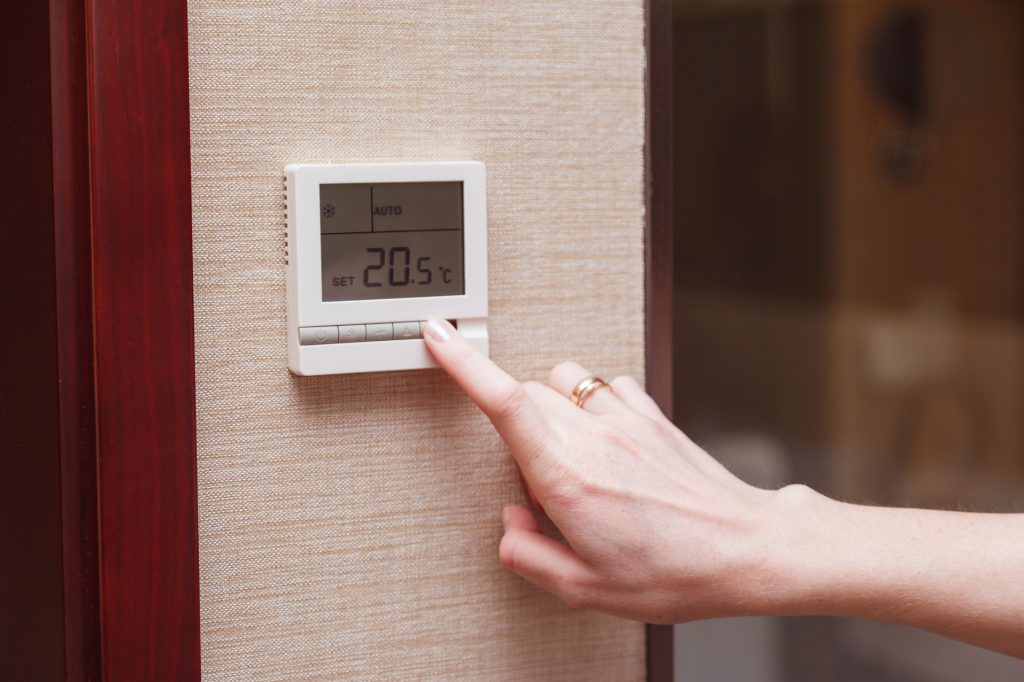Increasing the energy efficiency of an HVAC (Heating, Ventilation, and Air Conditioning) system is crucial for reducing energy consumption, lowering utility bills, and minimizing the environmental impact. By implementing various strategies and adopting energy-efficient technologies, individuals and businesses can optimize their HVAC systems and achieve significant energy savings.
Regular Maintenance
Regular maintenance is essential for ensuring the optimal performance of an HVAC system. Dust, debris, and dirt accumulation can hinder airflow, strain the system, and reduce its efficiency. Routine maintenance, including cleaning or replacing air filters, checking refrigerant levels, and inspecting and cleaning coils, can help maintain the efficiency of the system and prevent potential issues. Be sure to learn more about how this can help create a more energy-efficient system.
Programmable Thermostats
Installing programmable thermostats is an effective way to optimize energy usage. These thermostats allow users to program temperature settings based on occupancy patterns, ensuring that the system operates only when necessary. By adjusting temperature settings automatically during periods of inactivity or when the building is unoccupied, energy waste can be minimized, resulting in significant energy savings.
Proper Insulation
Adequate insulation is critical for maintaining desired indoor temperatures and reducing heat transfer. Properly insulating walls, ceilings, floors, and ductwork can prevent heat loss in the winter and heat gain in the summer. Improved insulation reduces the workload on the HVAC system, allowing it to operate more efficiently and consume less energy.

Air Duct Sealing
Leaky air ducts can lead to significant energy loss and reduced HVAC system efficiency. Sealing air ducts using professional techniques, such as mastic sealant or metal tape, helps prevent air leakage and improves airflow. By ensuring that conditioned air reaches its intended destination without escaping through leaks, energy wastage can be minimized, and the system’s efficiency can be enhanced.
High-Efficiency Equipment
Upgrading to high-efficiency HVAC equipment is a significant step towards increasing energy efficiency. Energy Star-certified products, such as furnaces, air conditioners, and heat pumps, meet stringent energy efficiency standards. These systems incorporate advanced technologies, such as variable speed motors, advanced compressors, and improved heat exchangers, to deliver optimal performance while using less energy.
Smart HVAC Controls
Utilizing smart HVAC controls can optimize energy usage and enhance system efficiency. These controls integrate with building automation systems and allow for remote monitoring and control of HVAC settings. Smart controls can dynamically adjust temperature settings based on occupancy, weather conditions, and other factors, ensuring optimal comfort while minimizing energy waste.
Renewable Energy Integration
Incorporating renewable energy sources, such as solar or geothermal, can significantly improve the energy efficiency of an HVAC system. Solar panels can generate electricity to power the system, while geothermal heat pumps utilize the constant temperature of the ground to provide heating and cooling. By harnessing renewable energy, reliance on traditional energy sources can be reduced, resulting in substantial energy savings.
Increasing the energy efficiency of an HVAC system requires a multifaceted approach. By implementing these strategies and practices, energy consumption can be minimized, utility bills can be reduced, and the environmental impact can be mitigated.
